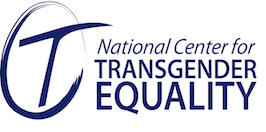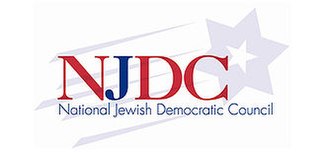
In politics, lobbying, persuasion, interest representation, government relations, or government affairs and sometimes legislative relations, legislative affairs, or advocacy, is the act of lawfully attempting to influence the actions, policies, or decisions of government officials, most often legislators or members of regulatory agencies, but also judges of the judiciary. Lobbying, which usually involves direct, face-to-face contact in cooperation with support staff that may not meet directly face-to-face, is done by many types of people, associations and organized groups, including individuals on a personal level in their capacity as private citizens, it is also practiced by corporations in the private sector serving their own interests, by non-profits and non-governmental organizations in the voluntary sector, by fellow legislators or government officials influencing each other through legislative affairs in the public sector, and by advocacy groups. It is also an industry known by many of the aforementioned names, and has a near complete overlap with the public affairs industry. Lobbyists may be among a legislator's constituencies, for example amateur lobbyists such as a voter or a bloc of voters within their electoral district acting as private citizens; while others like professional lobbyists may engage in lobbying as a business or profession. Professional lobbyists are people whose business is trying to influence legislation, regulation, or other government decisions, actions, or policies on behalf of a group or individual who hires them. Individuals and nonprofit organizations can also lobby as an act of volunteering or as a small part of their normal job. Governments often define "lobbying" for legal purposes, and regulate organized group lobbying that has become influential.

The National Association of Broadcasters (NAB) is a trade association and lobby group representing the interests of commercial and non-commercial over-the-air radio and television broadcasters in the United States. The NAB represents more than 8,300 terrestrial radio and television stations as well as broadcast networks.

The Human Rights Campaign (HRC) is an American LGBTQ advocacy group. It is the largest LGBTQ political lobbying organization within the United States. Based in Washington, D.C., the organization focuses on protecting and expanding rights for LGBTQ individuals, most notably advocating for same-sex marriage, anti-discrimination and hate crimes legislation, and HIV/AIDS advocacy. The organization has a number of legislative initiatives as well as supporting resources for LGBTQ individuals.
Common Cause is a watchdog group based in Washington, D.C., with chapters in 35 states. It was founded in 1970 by John W. Gardner, a Republican, who was the former Secretary of Health, Education, and Welfare in the administration of President Lyndon Johnson as well as chair of the National Urban Coalition, an advocacy group for minorities and the working poor in urban areas. As initially founded, Common Cause was prominently known for its efforts to bring about an end to the Vietnam War and lower the voting age from 21 to 18.

The National Center for Transgender Equality (NCTE) is a nonprofit social equality organization founded in 2003 by transgender activist Mara Keisling in Washington, D.C. The organization works primarily in the areas of policy advocacy and media activism with the aim of advancing the equality of transgender people in the United States. Among other transgender-related issue areas, NCTE focuses on discrimination in employment, access to public accommodations, fair housing, identity documents, hate crimes and violence, criminal justice reform, federal research surveys and the Census, and health care access.
The American Coalition for Clean Coal Electricity is a U.S. non-profit advocacy group representing major American coal producers, utility companies and railroads. The organization seeks to influence public opinion and legislation in favor of coal-generated electricity in the United States, placing emphasis on the development and deployment of clean coal technologies.
Christian Voice is an American conservative political advocacy group, known as part of the Christian right within U.S. politics. In 1980, Christian Voice claimed 107,000 members including 37,000 pastors from 45 denominations. Christian Voice was headquartered at the Heritage Foundation in the 1970s and 1980s and is currently located in suburban Washington, D.C., in Alexandria, Virginia.

Lobbying in the United States describes paid activity in which special interest groups hire well-connected professional advocates, often lawyers, to argue for specific legislation in decision-making bodies such as the United States Congress. It is a highly controversial phenomenon, often seen in a negative light by journalists and the American public, with some critics describing it as a legal form of bribery, influence peddling, and/or extortion. While lobbying is subject to extensive and often complex rules which, if not followed, can lead to penalties including jail, the activity of lobbying has been interpreted by court rulings as constitutionally protected free speech and a way to petition the government for the redress of grievances, two of the freedoms protected by the First Amendment of the Constitution. Since the 1970s, lobbying activity has grown immensely in the United States in terms of the numbers of lobbyists and the size of lobbying budgets, and has become the focus of much criticism of American governance.

The Alliance for Retired Americans (ARA) is a 501(c)(4) non-profit organization and nonpartisan organization of retired trade union members affiliated with the AFL-CIO, which founded it in 2001. The group's membership also includes non-union, community-based activists. Its predecessor organization was known as the National Council of Senior Citizens (NCSC).

The National Jewish Democratic Council (NJDC) was a political lobbying organization that advocated within the Democratic Party for viewpoints aligned with the American Jewish community and in support of the state of Israel, and within the political process generally, between 1990 and about 2016.
The National Committee to Preserve Social Security and Medicare(NCPSSM) is a United States liberal advocacy group whose goal is to protect Social Security and Medicare. NCPSSM works to preserve entitlement programs through direct mail campaigns, candidate endorsements, incumbent ratings, grassroots activity, issue advertising, and campaign contributions.
Advocacy groups, also known as interest groups, special interest groups, lobbying groups, pressure groups, or public associations use various forms of advocacy in order to influence public opinion and ultimately policy. They play an important role in the development of political and social systems.
The American Council of Engineering Companies (ACEC) is the oldest and largest business association of engineering companies. It is organized as a federation of 52 state and regional councils with national headquarters in Washington, D.C., comprising thousands of engineering practices throughout the country. It administers extensive lobbying and education programs.

James Arthur Pope is an American businessman, attorney and former government official. Pope is the owner, chairman and CEO of Variety Wholesalers, a group of 370 retail stores in 16 states. He is also the president and chairman of the John William Pope Foundation. He previously served in the North Carolina House of Representatives and recently served as the Budget Director for North Carolina Governor Pat McCrory.
The Copyright Alliance is a nonprofit, nonpartisan 501(c)(4) organization representing artistic creators across a broad range of copyright disciplines.

The Glover Park Group is an American communications consulting firm headquartered in Washington, D.C. The company was founded in 2001 by former White House and Democratic campaign officials Carter Eskew, Michael Feldman, Joe Lockhart and Chip Smith.
Engine is a non-profit group advocating for public policies that encourage the growth of technology startups in San Francisco, California. Engine is composed of a 501(c)(3) organization called Engine Research Foundation and a 501(c)(4) called Engine Advocacy. Engine Advocacy and Engine Foundation are the two branches of a non-profit organization that conducts economic research and policy analysis research and provides support and advice to technology startups. Engine Advocacy was an instrumental partner in the effort to defeat PIPA and SOPA back in 2012. The organization researches and advocates around the issues of open Internet, intellectual property reform, privacy laws, Internet and spectrum access and immigration reform. Google, SV Angel, 500 Startups, Mozilla, Yelp and the Startup Genome support the organization.
The Biotechnology Innovation Organization (BIO) is the largest advocacy association in the world representing the biotechnology industry.
Environmental Action is a 501(c)(4) non-profit environmental advocacy organization in the United States. Founded in 1970 by environmental activists at the first Earth Day, it operated until 1996 but was then rebooted in 2012 as part of the Public Interest Network, a family of non-profit organizations that includes the Public Interest Research Group, Environment America, Green Corps and others.








